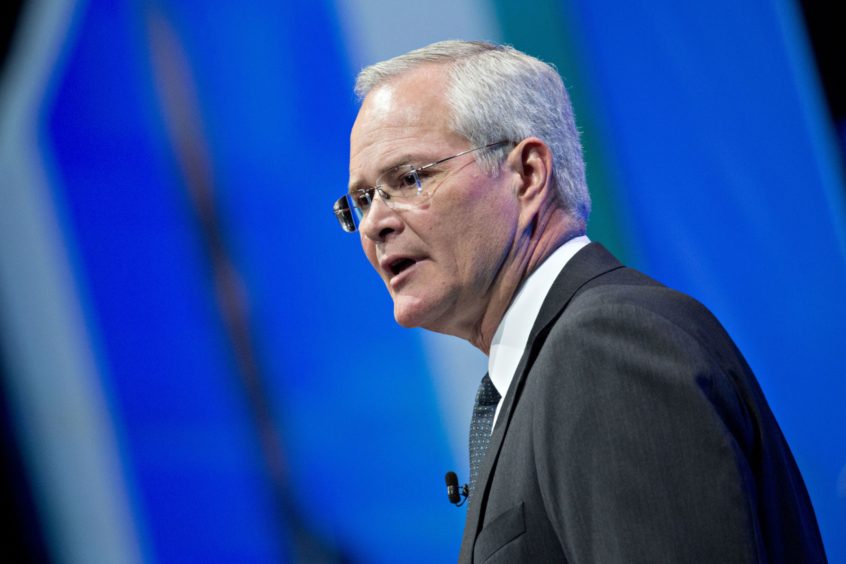
Don’t count on America’s oil giants to join their rivals across the pond in ambitious efforts to cut carbon dioxide emissions.
On Thursday, Exxon Mobil Corp. Chief Executive Officer Darren Woods dismissed the long-term pledges from Europe’s top crude producers as nothing more than a “beauty competition” that would do little to halt climate change. His comments echo those of Chevron Corp. CEO Mike Wirth earlier this week.
Energy companies need to focus on global, systemic efforts to reduce greenhouse gases, rather than just replacing their own emissions-heavy assets with cleaner ones to make themselves look good, Woods to investors in New York.
“Individual companies setting targets and then selling assets to another company so that their portfolio has a different carbon intensity has not solved the problem for the world,” Woods said at Exxon’s analyst day. Exxon is focused on “taking steps to solve the problem for society as a whole and not try and get into a beauty competition.”
The stance from the top two U.S. energy executives underscores the growing divide between U.S. and European oil explorers in their approach to addressing climate change. Both see oil and gas demand growing for decades and refuse to compete in a crowded market for renewables where they have little expertise.
Much-derided plastic even came in for some praise, with Exxon Senior Vice President Jack Williams arguing that it’s “a net benefit to society and to the environment.”
By contrast Royal Dutch Shell Plc, Repsol SA and Eni SpA have pledged to make large reductions in carbon emissions over the long term, while BP Plc went a step further last month with a target to become carbon neutral by 2050.
Companies changing their production mix “doesn’t change the demand” for oil and gas, Woods said. “If you don’t have a viable alternative set, all you’re doing is moving out from one company or one country to someplace else. It doesn’t solve the problem.”
Exxon sees world demand for oil and gas growing substantially out to 2040, even under the goals of the Paris Agreement, which seeks to limit temperature rise to 2 degrees Celsius above pre-industrial levels. Renewables such as wind and solar won’t be enough to meet demand growth on their own, according to Exxon.
In any case, it remains to be seen whether oil giants can generate big profits by producing carbon-free energy. Solar, wind and battery storage projects haven’t shown they can fund the huge dividends that underpins the industry’s investment case.
To underscore his point, Woods said that global emissions have risen 4% since the Paris Agreement was signed four years ago and energy demand is up 6%.
For the energy industry to truly address climate change, Woods believes major technological breakthroughs are needed in the fields of carbon capture, alternative fuels in transport and re-thinking industrial processes. The company is investing in all of these fields but admits that progress will take time.
Exxon is also taking steps to reduce emissions from its own operations including reducing methane emissions and gas flaring.
Recommended for you
